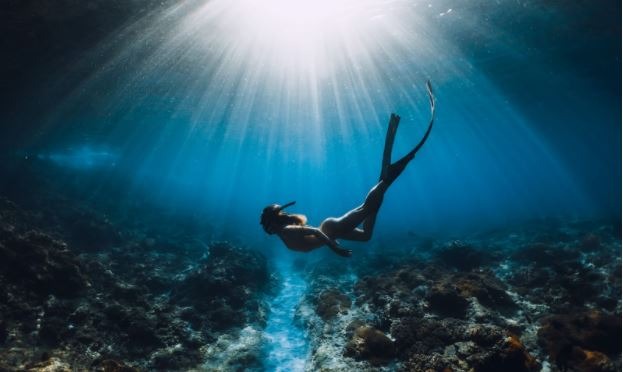If you have decided to learn how to free dive, then I have very important tips for you. As a neophyte, I would like to share with you some advice on this topic to help you become a successful freediver. Firstly, remember that you should never dive in waters which are unhealthy for marine life or at least not beyond the skill level of your training, also make sure you take a good quality inflatable kayak until your dive point. I have seen some people get scared of the tank temperature and end up freezing to death while learning the technique of freediving. If your classes are being held outside, it is important to dress appropriately to protect yourself from the sun and cold.
Secondly, you should never dive into water which has a lot of clutter or cobwebs on the bottom. Cobwebs are made from dead fish and other creatures that may be disturbed while searching for food. They stick to surfaces and sometimes attach themselves to metal instruments such as divests. Their bodies grow large and heavy. This can injure divers if they get tangled in their webs.
The most important of my tips concerns positioning yourself. Before you dive in, take a look at the bottom of the ocean or lake where you will dive. Is the water flat and smooth or bumpy and edgy? It is important to take into consideration the current of the water when determining where to dive. If you are unsure, then move deeper or leave the water for a while.
Another one of my important tips is about wearing flippers. Flippers allow divers to glide more easily over the surface of the water. In addition, they take less effort to hold because you don’t have to take both your feet underwater to drag them around when diving. Some divers even prefer to just use a rubber flipper.
Next, remember to keep your regulator set to the recommended pressure. It is recommended that divers take a minimum of thirty seconds to take a deep breath before exhaling. You should also try to take a twenty-second breath before you put your diving mask back on. Never take any breaths while submerged.
Finally, it’s important to keep your head steady as you dive. This may seem obvious, but water waves and currents can sometimes be very strong in certain areas. If your mind becomes disoriented, you could easily lose control and end up diving deeper than you intended. To avoid this problem, make sure your mind is still and concentrated on the task at hand. Take long, deep breaths while concentrating on exactly where you are going and how fast you are moving. It may also help to move your head side to keep the head area steady.
While it is important to take great care of your safety equipment, one part that you need to remember is to not take any unnecessary risks. When freediving, always plan ahead as to where you are going to dive. For example, if you are going to dive into a body of water that is not familiar to you, make sure you research the area first so you can dive safely. You should also never dive alone.
Once you are ready to get out into the water, it’s time to practice your breathing techniques. Learn how to inhale and exhale properly. Practice breathing at a depth of around fifteen feet or more for the best results. Once you feel confident with your breathing, it is time to pick up your regulator and make your first dive. With these important tips for freediving, you will soon be breathing underwater like a pro.

